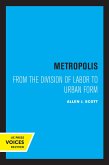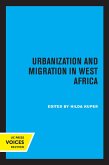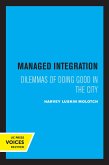This study analyses the way in which tribal ties are maintained in the development of a tribally mixed, middle class community in Kampala, Uganda. Political independence in the early nineteen sixties in much of Africa created expectations of increased development, education and living standards. There was hope that ethnic tensions arising from false colonial boundaries might be transcended by newly emerging socio-economic status-groups. However, the new national boundaries suddenly made aliens of peoples who had migrated and settled in towns distant from their home countries. The interplay of nationality, ethnicity and socio-economic status or class was given a new theatre. Hope was dramatically tempered by nationalist and ethnic conflicts which cut across ethnically mixed, small status groups of neighbours and friends. In Kampala, Uganda, this rapidly unfolding drama resulted in the expulsion of two Kenyan ethnic groups and polarised peoples from northern and southern Uganda. The essentialisation of ethnic and national identity imposed by colonialism was thus taken on in this new situation by the people themselves, with the result that they became 'cultural' starting-points of social and political judgement.
This title is part of UC Press's Voices Revived program, which commemorates University of California Press's mission to seek out and cultivate the brightest minds and give them voice, reach, and impact. Drawing on a backlist dating to 1893, Voices Revived makes high-quality, peer-reviewed scholarship accessible once again using print-on-demand technology. This title was originally published in 1969.
This study analyses the way in which tribal ties are maintained in the development of a tribally mixed, middle class community in Kampala, Uganda. Political independence in the early nineteen sixties in much of Africa created expectations of increased dev
This title is part of UC Press's Voices Revived program, which commemorates University of California Press's mission to seek out and cultivate the brightest minds and give them voice, reach, and impact. Drawing on a backlist dating to 1893, Voices Revived makes high-quality, peer-reviewed scholarship accessible once again using print-on-demand technology. This title was originally published in 1969.
This study analyses the way in which tribal ties are maintained in the development of a tribally mixed, middle class community in Kampala, Uganda. Political independence in the early nineteen sixties in much of Africa created expectations of increased dev
Dieser Download kann aus rechtlichen Gründen nur mit Rechnungsadresse in A, D ausgeliefert werden.









